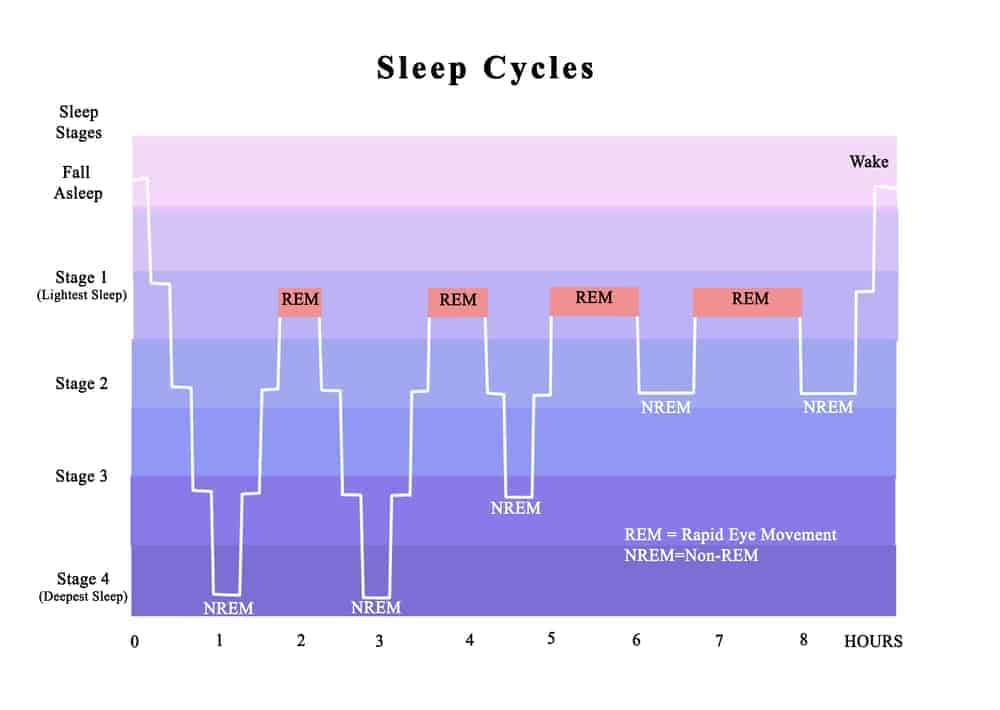Have you ever been startled awake mid-slumber because you were having an extremely vivid dream? Or have you ever spent an entire day reflecting on an almost life-like dream that you experienced the night before? Perhaps you’ve had recurring dreams; the same setting, characters, and theme every time you fall asleep.
People of all ages – from newborns to the elderly – dream; even animals experience dreams. Sometimes, those dreams are blissful and make you feel all warm and fuzzy inside, and other times, they’re frightening nightmares that seem like a late-night horror story.
When you have a graphic dream – whether it jolts you awake or you recall it hours later – you’re probably wondering one of life’s most common questions: what are dreams and what do they mean?
Let’s explore a bit about dreams and what the themes of some dreams – alligators for example – can mean.
A dream is a collection of images or a story that plays in your mind while you’re asleep. They can run the gamut from sweet, funny, or romantic, to crazy, scary, and downright disturbing.
As mentioned, everyone dreams; even when you don’t recall a dream upon waking, it’s very likely that you experienced several. Sleep experts and psychologists believe that the average person experiences 3 to 6 dreams per sleep session, and that each of those dreams last for a period of 5 to 20 minutes.
Despite the frequency of dreams, forgetting them is not unusual. It’s estimated that approximately 95 percent of all dreams are forgotten upon waking.
But why exactly do we dream? The truth is, despite extensive studies, the reason remains unknown. What is known is that dreams seem to occur during Rapid Eye Movement (REM) sleep, the deepest stage of sleep.

Though the exact purpose of dreaming is not clearly understood, several explanations have been offered. Some hypothesize that dreams are a representation of our unconscious desires, hopes, worries, and fears.
Others believe that they help us consolidate and process through all of the information we have collected during our waking hours. It has also been theorized that dreams are a form of psychotherapy or that they are the interpretation of indiscriminate cognitive and physical signals that are generated during sleep.
Whatever the reason, experts do agree that dreaming is beneficial and that it does serve a purpose. According to the most recent findings, it is believed that dreams help us to process our memories when we aren’t exposed to external stimuli (light, sounds, scents, etc.).
It has also been suggested that dreams are a way to help us prepare for perceived threats that we could experience in the future. Other benefits of dreaming, as per recent evidence, include:
Despite all of the proposed meanings and benefits, much remains to be discovered about dreams. Nevertheless, there is one thing that is certain: the settings, characters, and overall themes of our dreams can be downright strange.
Because nobody really knows why we dream or the exact purpose that they serve, it’s difficult to pinpoint exactly what dreams mean. Additionally, the fact that they can vary from person-to-person and they can be based on a collection of real-life experiences and our imagination makes it even more difficult to decipher.
With all of that said, it’s likely that you’ve experienced and recall some pretty far-out dreams that have left you scratching your head. For example, you may have had dreams about strange places that you have never been, experiences that you have never had, people whom you have never met, and even animals that you have never encountered.
There’s one type of animal that may have come up in your dreams and you can’t quite figure out why that animal would appear: Alligators.
If you’ve dreamed about alligators, or their relatives, crocodiles you’re likely wondering what the animal represents and why it's come before your subconscious mind while you're sleeping. Let’s explore some possible reasons.

For thousands of years, it has been believed that dreams are spiritual in nature. They can be analyzed in a variety of ways, and the analysis is dependent on the specific topic/character/setting that you were dreaming about, as well as the current circumstances you are experiencing in life.
Many people have dreamed about alligators at one time or another. If you have, you are probably wondering what the animal represents and why it would be in the forefront of your subconscious mind.
When an alligator appears in your dreams, it could be a sign that you have discovered a hidden instinct within yourself; it could also mean that you have experienced or uncovered an act of treachery or deception in your life.
Another possible explanation: an alligator could signify that you need to take a more inquisitive approach or acquire an enhanced perspective about a particular situation that you are currently experiencing.
Alligators are majestic creatures. They have long been highly regarded by ancient civilizations. The ancient Egyptians, for example, worshiped Sobek, the God of Crocodiles. He was also regarded as the God of the Nile River; it was believed that Sobek delivered prosperity to the ancient Egyptians via the ebb and flow of the Nile.
In the modern world, people perceive alligators a bit differently. For instance, it could mean that something troublesome will happen in your future; however, some people believe that dreaming about this animal is a good thing, as it indicate that you are about to embark on a healing process.
Another common theory suggests that you are mentally or emotionally imbalanced and that your overall well-being is not in good standing; that you are stressed out and holding onto too much underlying tension, and that stress and tension needs to be addressed in order to restore harmony.
A dream about an alligator could also be positive. As these animals are powerful apex predators, dreaming about them could mean that you will experience future success; something you are intending on setting out to achieve.
Of course, the manner in which you experience the alligator in your dream would also affect the meaning behind it:
Dreams about alligators can certainly make you wonder. If you ever experience this type of dream, stop and think about the current state of your life and how an alligator could relate to your current situation. Dreams are a centered experience and their meaning will change on a case by case basis.

Snoringsource.com is a participant in the Amazon Services LLC Associates Program, an affiliate advertising program designed to provide a means for website owners to earn advertising fees by advertising and linking to amazon(.com, .co.uk, .ca etc) and any other website that may be affiliated with Amazon Service LLC Associates Program.